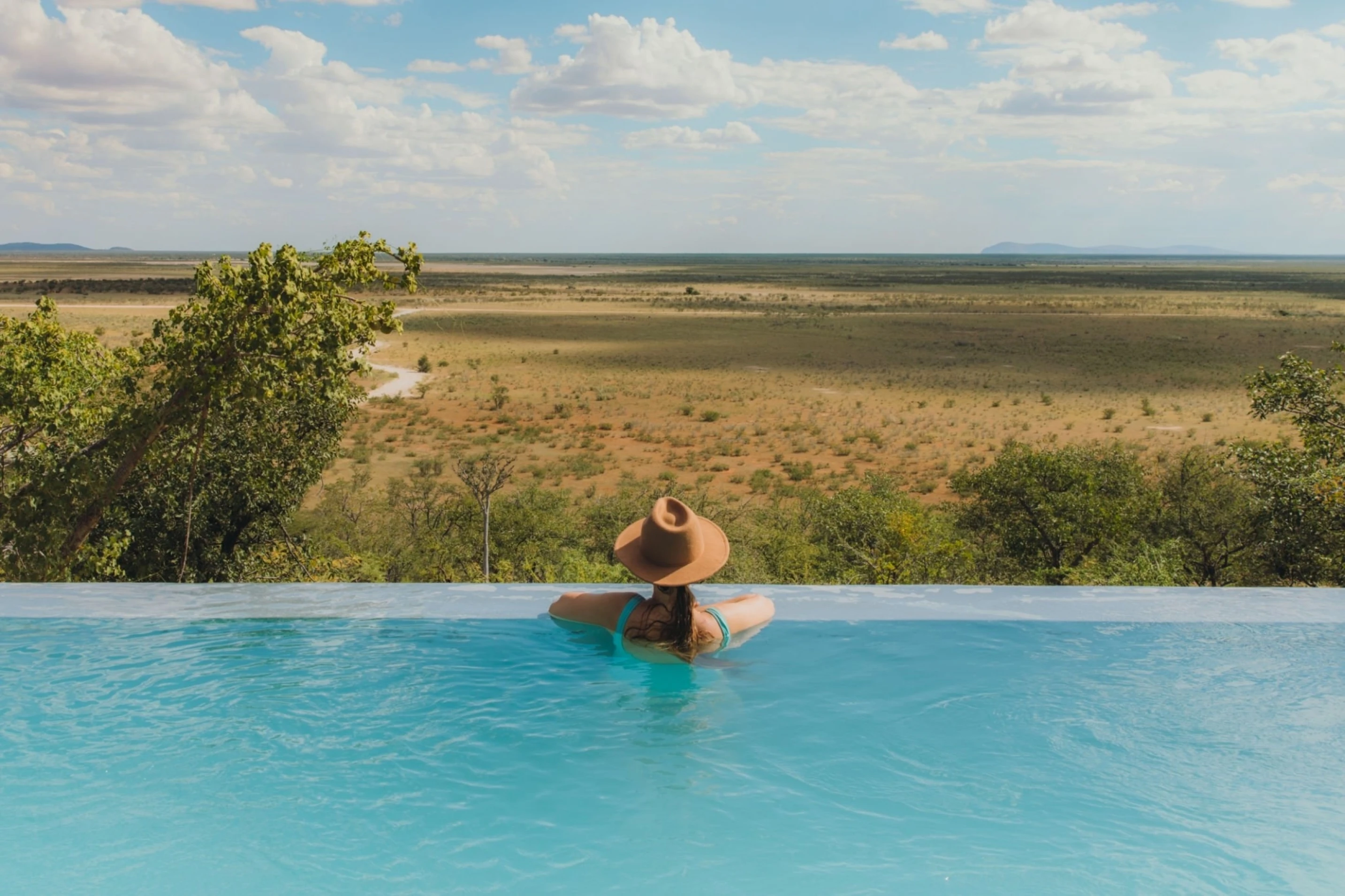What is Slow Lifestyle?
From the protesting of a McDonald’s in Rome, 1986, the slow lifestyle movement was born. First slow food, then slow travel, the concept of slow living is now a global phenomenon that this website has been designed to celebrate.

If you're feeling overwhelmed by the fast pace of modern life and yearning for a simpler, more meaningful existence, this new website is the right place for you.
Slow living is all about taking the time to appreciate the little things in life and savouring each moment. It's about living in harmony with nature and valuing quality over quantity. Slow Lifestyle will explore the many benefits of slow living and provide tips and inspiration for incorporating this lifestyle into your daily routine.
So Where Did it All Begin?
When the golden arches of McDonald's first decided to set up shop in the heart of Rome in 1986, it caused quite the commotion! From construction permits to noise complaints and even claims of ruining the historic centre, it seemed like everyone had something to say. But one journalist, Carlo Petrini, decided to take a different approach. Instead of joining in on the protests, he handed out plates of delicious pasta to the crowd.
Petrini was worried about the impact of fast food on Italian culture and wanted to protect traditional foods. And so, he took action and founded the Slow Food association. Just three years later, he joined forces with representatives from 15 countries in Paris to sign the Slow Food Manifesto and the international Slow Food movement was born! 25 years later, the movement has grown to include more than 150,000 members from all around the world.
“…to be slow means that you govern the rhythms of your life. You are in control of deciding how fast you have to go.”
— Carlo Petrini
Carlo Petrini has spoken extensively about the importance of slow living. He has emphasised the importance of valuing quality over quantity, appreciating the little things in life, and living in harmony with nature. Petrini has also spoken about how fast food and the fast pace of modern life can negatively impact culture and community, and how the Slow Food Movement aims to promote traditional foods and agricultural biodiversity.
In another one of his quotes he says "Slow food is a way of living and a way of eating. It is a global, grassroots movement with thousands of members around the world that links the pleasure of food with a commitment to community and the environment."

Embracing Petrini's Theory in a Contemporary Lifestyle
In today's fast-paced world, many people are turning to a slower, more deliberate lifestyle. This approach, known as the "slow movement," emphasises the importance of taking time to savour life's simple pleasures, and focusing on quality over quantity. Adopting a slow lifestyle can have many benefits for both your physical and mental health, as well as your overall well-being.
One of the key benefits of a slow lifestyle is reduced stress. When we rush through our days, we can easily become overwhelmed and stressed out. By slowing down, we can give ourselves time to relax, reflect, and recharge. This can help us feel more calm and centred, and can even improve our immune system, making us less susceptible to illness.
Another advantage of adopting a slow lifestyle is increased creativity. When we're constantly rushing from one task to another, it can be difficult to find time to be creative. However, slowing down can help us tap into our creativity and imagination, and allow us to explore new ideas and experiences. This can be especially beneficial for those in creative fields, such as writers, artists, and musicians.
A slow lifestyle can also promote better sleep. When we're always on the go, it can be challenging to wind down and get the restful sleep we need. By taking time to relax and slow down in the evenings, we can improve our sleep quality, leading to increased energy and productivity during the day.
Finally, adopting a slow lifestyle can help us cultivate more meaningful relationships. When we're rushing through our days, we may neglect the important people in our lives. By taking time to connect with friends and family, we can strengthen our relationships and create lasting memories.

What Can I Expect to Find on Slow-Lifestyle.net?
We're going to be talking about many of the slow lifestyle and sustainable living trends that have gained significant popularity in recent years, as people become more aware of the environmental and personal benefits of these practices. Some trends in slow lifestyle and sustainable living that you might expect us to cover include:
Minimalism: Emphasising owning fewer possessions and living with only what is necessary. This helps reduce waste and promotes a more mindful, less cluttered lifestyle.
Local and seasonal eating: Supporting local agriculture and consuming seasonal produce helps reduce the carbon footprint of food transportation while benefiting local economies.
Zero waste living: Adopting practices to reduce waste generation, such as using reusable containers, composting, and choosing products with minimal packaging.
Conscious consumption: Being mindful of the environmental and social impacts of products and services and choosing those with ethical and sustainable practices.
DIY and upcycling: Engaging in do-it-yourself projects and repurposing old items into new, functional products helps reduce waste and promotes a circular economy.
Energy efficiency and renewable energy: Adopting energy-saving practices in daily life and choosing renewable energy sources when possible to reduce greenhouse gas emissions.
Slow fashion: Choosing quality, ethically made, and durable clothing items over fast fashion and disposable trends. This includes supporting sustainable brands and engaging in practices like mending, swapping, and thrifting.
Eco-friendly transportation: Reducing carbon emissions by using public transportation, biking, walking, or opting for electric or hybrid vehicles.
Green spaces and gardening: Creating and maintaining green spaces in urban environments, such as community gardens or planting native species, promotes biodiversity and improves air quality.
Digital detox and mindfulness: Disconnecting from digital devices periodically to focus on mental well-being and fostering mindfulness through meditation and other mindful practices.
These trends highlight a growing awareness of the need for sustainable living and a focus on the quality of life rather than materialistic pursuits. They encourage individuals to adopt more environmentally friendly practices and support businesses that prioritise sustainability.
Welcome to Slow-Lifestyle.net
So, welcome to our new blog about slow lifestyle and sustainability! We're thrilled to have you here and can't wait to share our passion for living a more intentional and eco-friendly life.
In a world that often prioritises speed and convenience over sustainability, we believe that adopting a slower, more deliberate approach to life can have a positive impact on both ourselves and the planet. By taking time to consider our actions and their impact, we can make more conscious choices that support a healthier, more sustainable future.
On this blog, you can expect to find a variety of topics related to slow living and sustainability. From tips for reducing waste and conserving resources, to stories about individuals and communities making a positive difference, we aim to inspire and inform our readers about the many benefits of living a slower, more sustainable lifestyle.
We'll also be sharing our own personal experiences and insights, as well as featuring guest writers and experts in the field. We believe that everyone has a role to play in creating a more sustainable future, and we hope to provide a welcoming and supportive space for discussion and inspiration.
So whether you're already a passionate advocate for sustainability, or simply curious about how you can make a positive impact, we invite you to join us on this journey towards a more intentional, mindful, and eco-friendly way of life. Let's slow down, connect with the world around us, and work towards a brighter future for all.